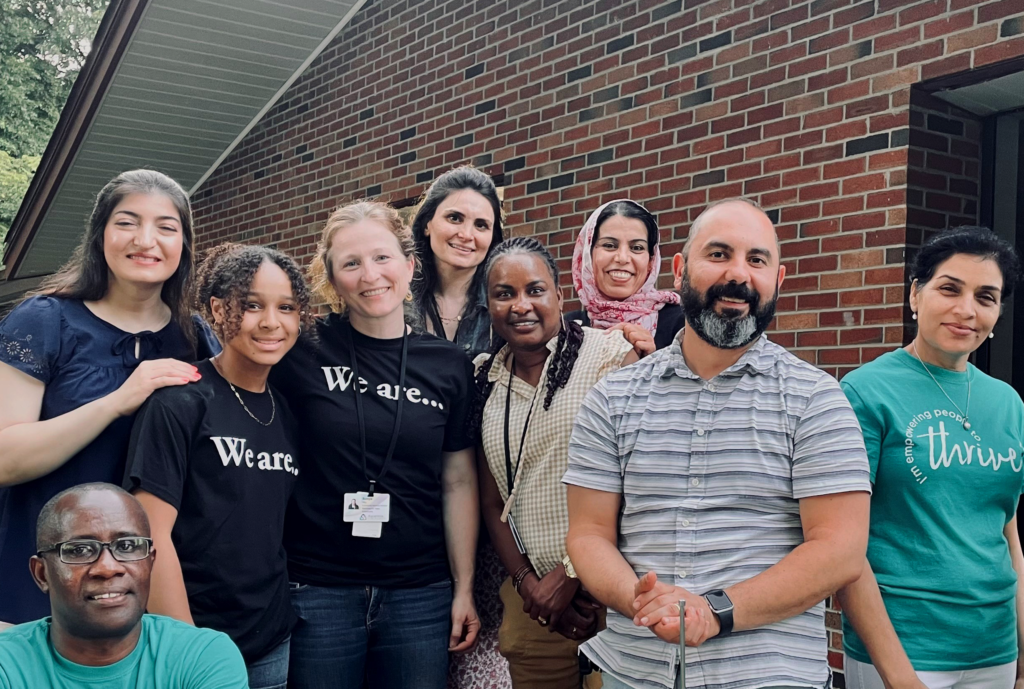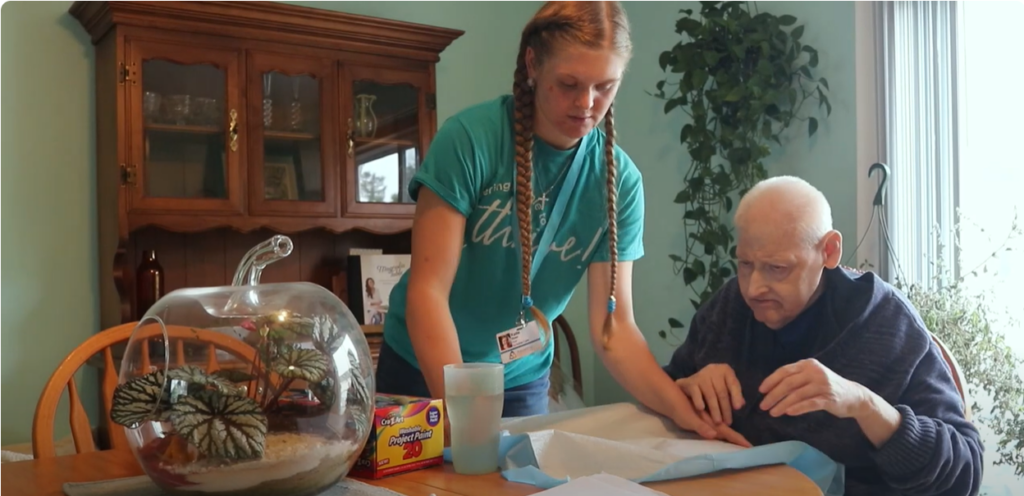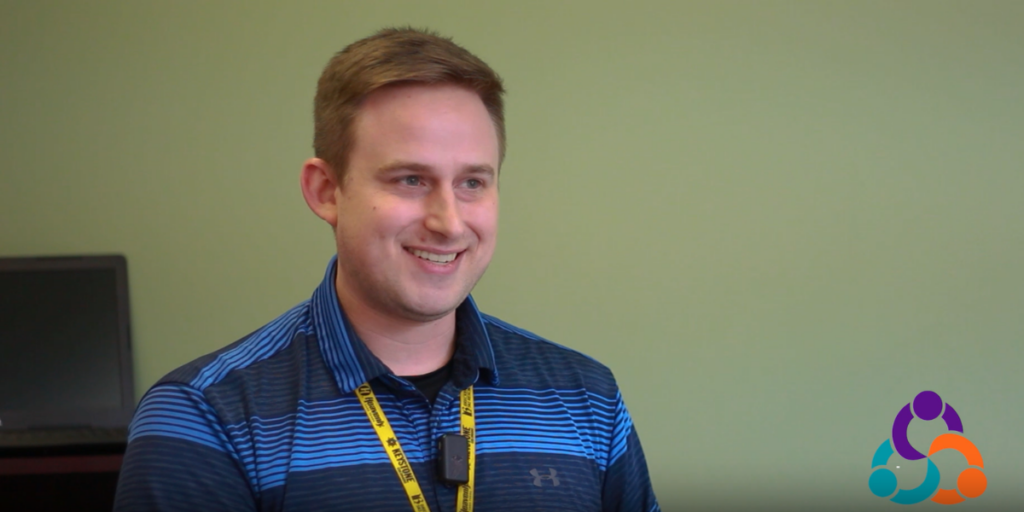An Agent of Change
December 17, 2020 Worcester Living – By Richard Duckett

When Stacey Luster was elected president of the Worcester County Mechanics Association, which owns and operates Mechanics Hall, in 2019 it didn’t take her long to make an impact on the venerable institution.
A year later at the association’s 177th annual meeting Sept. 22 it was announced that a new initiative, the Mechanics Hall Portraits Project, will add the portraits of famous author and abolitionist Frederick Douglass (1818-1895) and Worcester businessman and abolitionist William Brown (1824-1892) to the Great Hall. They will be the first portraits of Black Americans to grace the hall, which has portraits of national and local notables of the 19th century looking down from the high walls of the historic venue.
At the meeting, Mechanics Hall executive director Kathleen M. Gagne credited Luster with the idea to add portraits of Black Americans.
“I think people hadn’t thought of it. I think there are a lot of Black people who hadn’t been in the hall. And I think people are excited,” Luster said a few weeks later.
As a volunteer for organizations such as the association and as an educational professional whose career has spanned Worcester Public Schools and higher education, the portraits initiative is another example of the way Luster has made positive things happen in the Worcester community since the 1990s.
“She’s one in a million,” said Linda Cavaioli, executive director of the YWCA of Central Massachusetts, who has known Luster since the 1990s. “She’s very outgoing, very poised, really bright, passionate about what she believes in but the consummate professional willing to build bridges but not give in on what she stands for.”
A third-generation Worcesterite who grew up in the projects at Great Brook Valley, Washington Heights and Plumley Village while raised by a single mother, Luster graduated from South High Community School at the age of 16 and was the first African American woman to be elected to the Worcester City Council, serving from 1997 to 2000.
Luster was human resources manager for Worcester Public Schools for 15 years before coming to Worcester State University in 2015 as assistant vice president for human resources, payroll, and affirmative action and equal opportunity. In August, she was named to the new position of general counsel and assistant to the president for employment and equal opportunity at Worcester State University.
“Stacey has been an outstanding member of our leadership team. Someone who hit the ground running,” said Barry M. Maloney, president of WSU. “She pushes not only me but senior members of our team to think about things differently.”
“I think the university is doing fantastic,” Luster said about its progress with diversity and inclusion, but added “it’s an ongoing never-ending process.”
She observed that “Worcester State was put on track for being a leader in this area many years ago by the former diversity officer, Edna Spencer. Worcester State was leading courageous conversations. That’s how I knew about Worcester State’s work because of the work that Edna Spencer led both with faculty and students.”
Edna P. Spencer, who served as WSU’s director of diversity and affirmative action officer for 16 years before retiring in 2012, died earlier this year.
“Edna’s recent passing was a reminder of the work we still have left to do,” Maloney said.
Luster’s new title means in part that she will be be dealing with more legal matters than before and reporting directly to Maloney, “helping me on issues of diversity inclusion and campus climate,” he said. “We have certainly been for a long time committed to make the university a more inclusive place to work and attend school … (With) Stacey it was a great opportunity for us both on campus and in the community.”
WSU has seen the number of nonwhite minority students rise from 18 percent in 2011 to over 32 percent in 2020. “I expect that is going to continue to grow,” Maloney said.
“One of the things that’s most important to to me is the fact that Worcester State, although it’s a university, it’s a public university. It continues to increase the diversity of its enrollment,” Luster said. “Although there are less 18-year-olds in general in the Northeast, Worcester State continues to increase its outreach and reaching of underprivileged students in the area.”
Diversity and inclusion also includes faculty. Raynold M. Lewis, associate dean of education at Worcester State, said “Stacey is a very positive person and is always encouraging people of color to ascend the next rung of the mobility ladder.”
Luster has cheered him on, he said. “She told me ‘you should be the chair of the department,’ “ Lewis said, “And after I became chair of the Education Department she said, ‘you should be the dean of the department.’ That was very encouraging to me since I did not have those aspirations at the time.”
Luster also worked at Quisigamond Community College as affirmative action and minority affairs officer sandwiched between two separate spells at Worcester Public Schools, first as affirmative action officer and later as human resources manager. “I’ve worked at all levels of public education:
K-12, and now through university,” Luster said.
“It’s so obvious to me that the only way out of poverty is through education, so I think it’s the most important calling in the world, and I think it’s my job to contribute to it.”
Initially, however, she saw herself contributing as a volunteer rather than building a professional career.
Luster was the only child of her mother, Carolyn Rutherford. Rutherford was born in Worcester, and so was Luster’s grandmother. Luster’s great-grandmother, who was originally from Virginia, was a founder of Mount Olive Pentecostal Church in Worcester.
Rutherford went back to school as an adult and became a paralegal. “She was very proud of the work,” Luster said. The 16-year-old Luster was living at Plumley Village when she graduated from South High, and then went to St. John’s University, New York, where she earned a B.A. in government and public administration. “It seems like I was meant to do what I’m doing but I didn’t know that at the time,” she said. Next, she earned a law degree from Boston University School of Law. Again, “I was honestly still trying to figure out my career,” she said.
At the time, the Worcester School Department, then led by superintendent John Durkin, was working on a new strategic plan and seeking input. “I started off just volunteering,” Luster said. “I volunteered to serve on the strategic planning committee as an alumna of South High. That exposure helped get my foot in the door, but that wasn’t my intent.” Luster said she was recruited by the School Department as an alumna who grew up in the projects to take a position that led to her becoming the affirmative action officer.
Once there did she did find her professional calling. In addition to getting minorities to take positions, she could also help students have careers. “I got to have not only my career, I got to create the pipeline for the students to have careers. So yes, that’s when it crystalized.” After about five years she left the position to become affirmative action and minority affairs officer at Quinsigamond Community College and remained an active volunteer in the Worcester community.
Indeed, she had become quite well known, and the suggestion came up that she should run for City Council in 1997. Cavaioli became her campaign manager. “I said ‘OK.’ I didn’t realize how big of a deal that was,” Luster said.
1997 was a year of upsets, with three challengers being elected to three of the six City Councilor at-large seats — Timothy P. Murray, Joseph M. Petty and Luster. Only one seat had been voluntarily vacated, by the departing John B. Anderson. Two seats would be lost by the incumbents.
“We were all first-timers and we all got in. We thought we were running for one seat (Anderson’s). It never occurred to us that we could bump somebody out,” Luster said. “I was very happy. We worked really hard. So many people helped me.”
John F. Simoncini, a former colleague in the Worcester School Department, was great at giving Luster introductions, but would always tell her afterward, “You’re not going to win,” she recalled. “We not only won, but there hadn’t been a Black person elected (to the City Council) in 60 years,” she said.
“We didn’t have any money,” Cavaioli recalled. But very quickly Luster “had a really broad following. She was just so bright and articulate and committed to the issues. People were drawn to her and her view on issues.” Luster was re-elected to a second two-year term in 1999, but had to vacate her seat in 2000 when she took the job as human resources manager at Worcester Public Schools because she couldn’t hold two city jobs.
“I think I served the purpose as well as I could. I realized I could have more impact from an administrative point. At the time it was the right thing to do because it had the most impact,” Luster said.
Asked if she ever thought that she could have eventually been mayor had she stayed on the City Council (as happened to Murray and now Petty), Luster said, “No. I thought it was the right thing. I wasn’t in politics for the glory. I was in to make change as an appointed official as well, so no regrets.”
Luster is the first African American to be elected president of the Worcester County Mechanics Association. Her numerous other volunteer affiliations have included serving on the Massachusetts Board of Higher Education, the Worcester Business Development Corporation, the Worcester Art Museum, Fallon Community Health Plan, Board of Trustees Chairperson for Quinsigamond Community College, and board member of the YWCA of Central Massachusetts.
“I don’t get involved with anything I don’t really care about.” Luster said. She has a home life with her husband, Charles Luster, and has a daughter, son, and three grandchildren. “I love to cook and spend time with my family, but I love to do public service. I believe that’s my purpose. We all have a purpose in life, and that’s mine.”
“People listen to her,” Cavaioli said. As a board member for the YWCA, Luster “brought important issues to the front. She was able to bring a lot of perspective on race and gender.”
As a friend, Cavaioli said, Luster is “fun and funny and likable. It’s not all business, but she’s very impactful in the work she does, both as a volunteer and a professional.”
The work continues. As Luster said, it is ongoing.
Regarding whether Worcester has changed in 30 years, Luster said, “I think the world and the city have become increasingly diverse over the past 30 years, and although the city is more diverse and the city has taken steps to embrace that diversity, I don’t think it’s enough. What we’ve done has not been at the pace of changes. We still have a lot to do. At no point should we think we’re all set. People ask me, what’s the end game — there is no end game. If you stop and take your foot off the gas pedal for one moment you lose pace and the diversity outpaces your work.”








